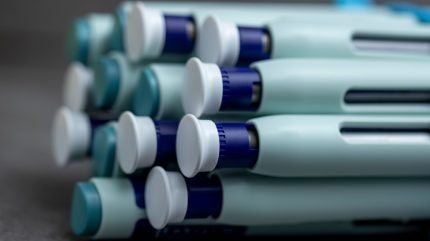
The US Food and Drug Administration (FDA) has approved GSK’s 200 mg/ml autoinjector of Benlysta for individuals aged five years and above with active lupus nephritis (LN), who are currently receiving standard treatments.
This approval provides patients with a subcutaneous option that can be self-administered at home.

Discover B2B Marketing That Performs
Combine business intelligence and editorial excellence to reach engaged professionals across 36 leading media platforms.
In 2024, the autoinjector was approved for active systemic lupus erythematosus (SLE) in paediatric patients.
With this approval, GSK broadens the therapeutic possibilities for belimumab treatment by offering a subcutaneous method specifically designed to aid paediatric LN patients and their caregivers.
GSK senior vice-president and US Specialty head Court Horncastle stated: “For children and parents of children with lupus nephritis, this approval represents a choice in their care.
“Providing this at-home treatment option with the efficacy and safety of Benlysta is a testament to our ongoing commitment to the lupus community. GSK is driven by the belief that our therapeutic solutions should always prioritise improving patients’ well-being and easing their treatment journey, including for younger patients.”

US Tariffs are shifting - will you react or anticipate?
Don’t let policy changes catch you off guard. Stay proactive with real-time data and expert analysis.
By GlobalDataLN is a severe complication of lupus, characterised by autoimmune attacks on the kidneys, which may lead to inflammation and potential organ damage.
Between 30% and 50% of children diagnosed with this condition develop LN within one to two years of their initial diagnosis.
Belimumab functions as an inhibitor that selectively binds to soluble B-lymphocyte stimulator (BLyS), inhibiting B cell survival, including the autoreactive B cells, thereby reducing their differentiation into plasma cells responsible for immunoglobulin (IG) production.
The therapy received its initial FDA approval as a treatment option for active SLE. It stands out as the sole biologic approved for both SLE and LN across more than 50 years, extending its benefits to paediatric patients.




